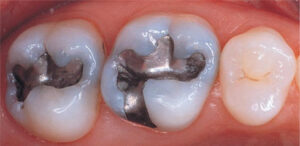On Thursday, September 24th, 2020, The FDA (Food and Drug Administration) issued a statement titled “FDA Issues Recommendations for Certain High-Risk Groups Regarding Mercury-Containing Dental Amalgam.” In their statement they issue “updated recommendations concerning dental amalgam and potential risks to certain high-risk individuals that may be associated with these mercury-containing fillings used to restore the missing structure and surfaces of a decayed tooth.”
The groups that the FDA states “may be” at a greater risk of negative health effects are:
- Pregnant women and their developing fetuses;
- Women who are planning to become pregnant;
- Nursing women and their newborns and infants;
- Children, especially those younger than six years of age;
- People with pre-existing neurological disease such as multiple sclerosis, Alzheimer’s disease or Parkinson’s disease
- People with impaired kidney function; and
- People with known heightened sensitivity (allergy) to mercury or other components of dental amalgam.
 Although the FDA defines these groups as ‘maybe’ having a higher-risk of negative health effects from dental amalgam, they don’t appear to provide any new evidence of this being the case. In fact, after the FDA released their statement, the ADA (American Dental Association) released their own press release reaffirming its position on dental amalgam.
Although the FDA defines these groups as ‘maybe’ having a higher-risk of negative health effects from dental amalgam, they don’t appear to provide any new evidence of this being the case. In fact, after the FDA released their statement, the ADA (American Dental Association) released their own press release reaffirming its position on dental amalgam.
The ADA’s press release did acknowledge that they agreed with the FDA’s recommendation of the patient discussing all treatment options with their dental provider, but pointed out that there is “little to no information” on whether or not anyone in these specific groups were at greater risk of negative health effects from the use of dental amalgam. The ADA stands by their assessment that “dental amalgam is a durable, safe and effective cavity-filling option.






 Customer Login
Customer Login